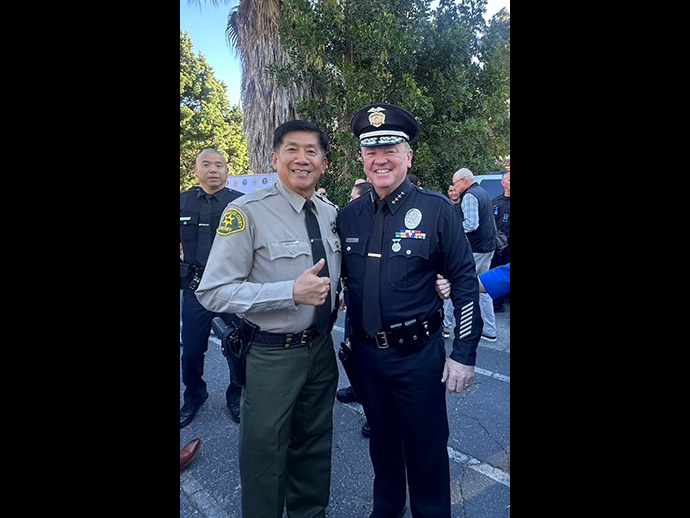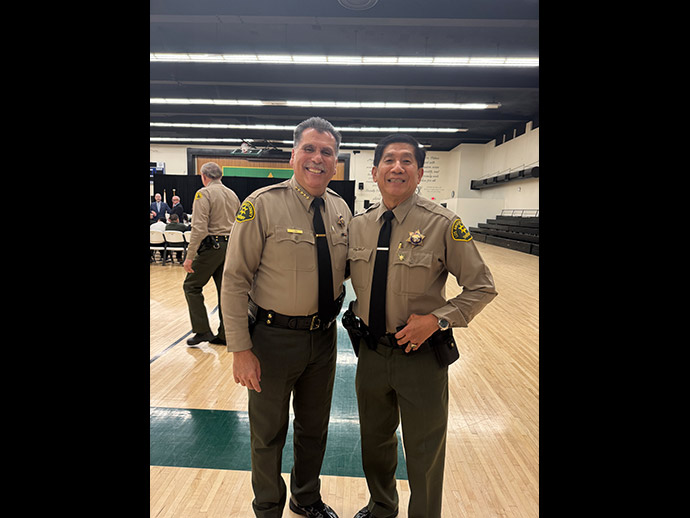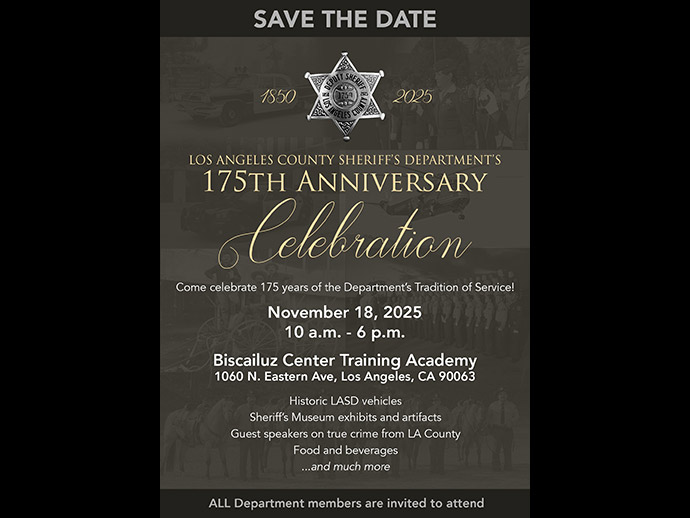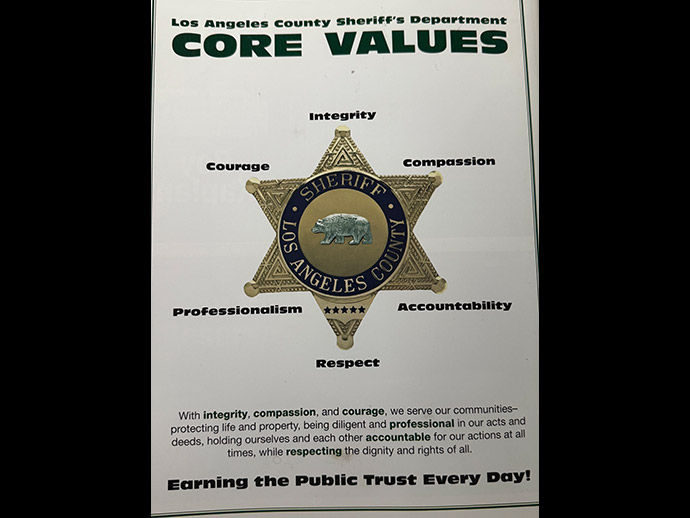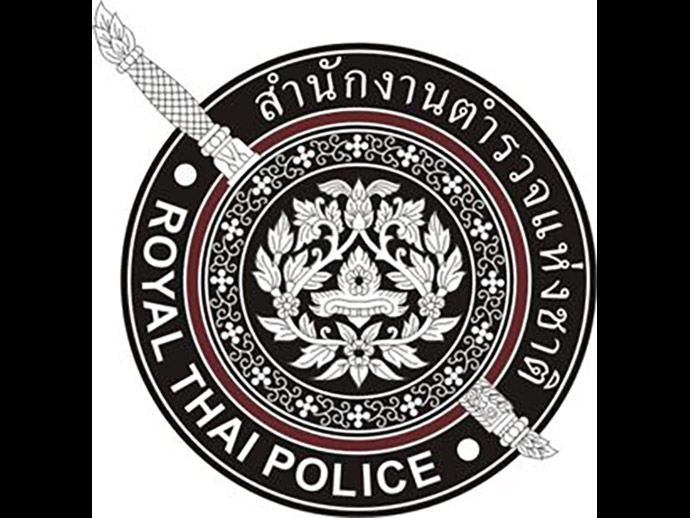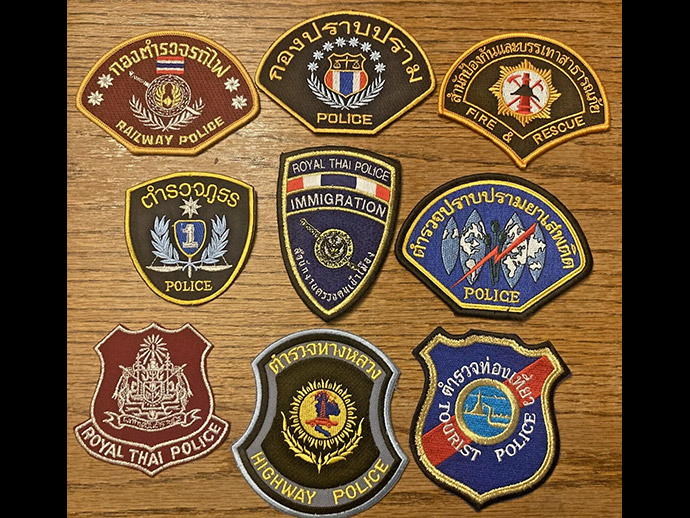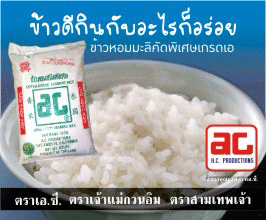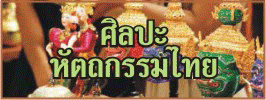วิกฤตศรัทธาที่ประชาชนมีต่อสำนักงานตำรวจแห่งชาติ(สตช)
ความเชื่อมั่นของประชาชนหรือ Public Trust คือหัวใจสำคัญของงานตำรวจในประเทศสหรัฐอเมริกา เพราะเป็นพื้นฐานของการทำงานร่วมกับประชาชนเพื่อให้เกิดความปลอดภัยในชีวิตและทรัพย์สิน อีกทั้งยังเป็นแรงสนับสนุนสำคัญที่ทำให้ตำรวจสามารถทำงานได้อย่างมีประสิทธิภาพและนำผู้กระทำผิดเข้าสู่กระบวนการยุติธรรมโดยไม่มีการเลือกปฏิบัติ ไม่ว่าบุคคลนั้นจะมีสถานะ ยศ หรือเส้นสายมากเพียงใด
ตัวอย่างใกล้ตัวคือกรณีการออกใบสั่งในสหรัฐ ตำรวจทำหน้าที่บังคับใช้กฎหมายเท่านั้น ส่วนการชำระค่าปรับเป็นหน้าที่ของศาล หากประชาชนคิดว่าตนบริสุทธิ์ ก็สามารถให้ผู้พิพากษาตัดสินได้ ซึ่งผู้พิพากษามักให้ความเชื่อถือต่อตำรวจเพราะเจ้าหน้าที่ได้รับการฝึกฝนอย่างเข้มงวดและต้องปฏิญาณเพื่อปกป้องรัฐธรรมนูญและทำหน้าที่ด้วยความซื่อสัตย์
สัญลักษณ์ดาว 6 แฉกของสำนักงานนายอำเภอในแอลเอ (LA County Sheriff’s Department) ก็สะท้อนค่านิยมหลักดังนี้
1. Integrity – ความซื่อสัตย์สุจริต
2. Courage – ความกล้าหาญ
3. Compassion – ความเมตตากรุณา
4. Professionalism – ความเป็นมืออาชีพ
5. Respect – ความเคารพในหน้าที่
6. Accountability – ความรับผิดชอบ
สำนักงานเชอรีฟยึดถือหลัก “Earning the Public Trust Every Day” มาเป็นเวลายาวนานกว่า 175 ปี ก่อตั้งมาตั้งแต่ปี ค.ศ 1850
________________________________________
มุมมองต่อสำนักงานตำรวจแห่งชาติไทย
ผมเชื่อมั่นว่า ตำรวจไทยจำนวนมากมีความสามารถและตั้งใจดี แต่ความศรัทธาจากประชาชนจะกลับมาได้ก็ต่อเมื่อผู้นำทุกระดับให้ความสำคัญกับความถูกต้อง ยึดประโยชน์ประชาชนเป็นหลัก และยุติระบบอุปถัมภ์ที่เข้ามาบั่นทอนองค์กร
ปัญหาเชิงโครงสร้างที่สั่งสม เช่น ระบบรวมศูนย์ การซื้อขายตำแหน่ง การขาดอุปกรณ์ และความเหลื่อมล้ำด้านรายได้ ล้วนทำให้ประชาชนรู้สึกว่าตำรวจไม่สามารถตอบสนองต่อความต้องการของสังคมได้
ถึงเวลากระจายอำนาจแล้วหรือยัง?
รูปแบบตำรวจท้องถิ่นแบบสหรัฐ—ที่นายอำเภอถูกเลือกตั้งโดยประชาชนในพื้นที่—ช่วยให้เกิดความโปร่งใสและเป็นอิสระจากการเมืองระดับชาติ คำถามคือ: สังคมไทยพร้อมหรือยังสำหรับการเลือกผู้นำตำรวจโดยประชาชน
การยกระดับการศึกษาและการให้ความรู้ด้านประชาธิปไตยและการตรวจสอบอำนาจรัฐจึงเป็นสิ่งจำเป็น
________________________________________
ปัญหา “ต้นน้ำ” ของการสรรหาตำรวจ
สหรัฐให้ความสำคัญกับการคัดเลือกบุคลากรอย่างมาก ทั้ง
• สอบข้อเขียนและสัมภาษณ์ Written Multiple Choice and Structured Interview
• ตรวจประวัติแบบละเอียด (ใช้เวลา 3–6 เดือน) Extensive Background Investigation
• ตอบคำถามผ่านเครื่องจับเท็จ Polygraph Examination
• การประเมินทางจิตวิทยาและร่างกาย Psychological and Medical Evaluations
จากผู้สมัคร 100 คน สอบไม่ผ่านกระบวนการต่าง ๆ ถึง 90% เหลือเพียงประมาณ 10 คนเท่านั้นที่ได้เข้าโรงเรียนตำรวจ
ค่าตอบแทนก็ชัดเจน เช่น (ต่อเดือน)
• จบ High School: $6,625 (ราว 212,000 บาท)
• จบอนุปริญญา AA/AS Degree $6,773 (ราว 216,736 บาท)
• จบปริญญาตรี BA/BS: $7,150 (ราว 228,800 บาท)
ในขณะเดียวกัน…
ตำรวจไทยเรียน 4 ปี ได้เงินเดือนเพียงราว 20,000 บาท แถมต้องซื้ออาวุธและอุปกรณ์เอง เป็นภาระที่ไม่ควรต้องเกิดขึ้น
________________________________________
ข้อเสนอที่เคยเสนอไว้ – ศาลจราจร
ผมเคยเสนอเมื่อกว่า 25 ปีก่อนตอนผมจบมาใหม่ ๆ ว่า ประเทศไทยควรแยก “การออกใบสั่ง” และ “การชำระค่าปรับ” ออกจากตำรวจ เพราะไม่มีประเทศพัฒนาแล้วประเทศใดให้ตำรวจเป็นผู้เขียนเอง สั่งปรับเอง การให้โบนัสตามจำนวนใบสั่งที่เขียนคือ ผลประโยชน์ทับซ้อน อย่างชัดเจน และเป็นรากเหง้าของ “จ่ายใต้โต๊ะ” (Conflict of Interest 101)
________________________________________
ปัญหาพนักงานสอบสวน
จำนวนไม่เพียงพอ รายได้ต่ำ และปริมาณงานมาก ทำให้ตำรวจจำนวนมากไม่ต้องการทำหน้าที่นี้ ควรมี การหมุนเวียนหน้าที่ (Job Rotation) เพื่อให้ทุกนายมีความสามารถในทุกด้าน รวมทั้งสืบสวน สอบสวน ป้องกัน และจราจร ตามแบบสหรัฐ
________________________________________
ปัญหางบประมาณและเครื่องมือ
อุปกรณ์สำคัญ เช่น ปืน คอมพิวเตอร์ กระดาษพิมพ์ ต้องซื้อเอง ซึ่งเป็นสิ่งที่ยอมรับไม่ได้ อีกทั้งปืนต่างรุ่นต่างยี่ห้อทำให้เสี่ยงต่อความปลอดภัยในการทำงานร่วมกัน ผู้นำต้องจัดงบประมาณให้ตำรวจมีอุปกรณ์พื้นฐานครบถ้วน
________________________________________
ส่วย–สินบน: ทำไมยังคงอยู่?
สินบน คือการให้สิ่งตอบแทนเพื่อให้ทำหรือไม่ทำบางอย่าง
ส่วย คือสินบนแบบ “รายเดือน/รายงวด” เช่น ตู้แดง สถานบันเทิง ฯลฯ
สรุปสั้น ๆ
• สินบน = จ่ายเป็นครั้งคราว
• ส่วย = จ่ายเป็นประจำ เพื่อให้กฎหมาย “มองไม่เห็น”
ความเสียหายจากคอร์รัปชันประเมินค่าไม่ได้ จึงต้อง Zero Tolerance กับการทุจริตทุกรูปแบบ
________________________________________
เปรียบเทียบการทำงาน ตำรวจไทย กับ ตำรวจอเมริกัน โดยสังเขป
ประเด็น ตำรวจไทย ตำรวจอเมริกัน
โครงสร้าง รวมศูนย์ระดับชาติ กระจายอำนาจท้องถิ่น
ดุลยพินิจ สูงในบางกรณี เข้มงวดตามมาตรฐาน
การใช้กำลัง ต้องให้คนร้ายทำก่อน ให้อำนาจตำรวจใช้ดุลพินิด ถูก ตรวจสอบเข้มงวด
หน่วยพิเศษ มีตำรวจท่องเที่ยว ต.ม พีซีที และอือื่นๆจนปชช จำไม่ได้ ไม่มี แต่มีหน่วยเฉพาะกิจช่วย
________________________________________
สรุป
ปัญหาที่ตำรวจไทยเผชิญ—ตั้งแต่ขั้นตอนการคัดเลือกเจ้าหน้าที่ การซื้อขายตำแหน่ง ขาดอุปกรณ์ ไปจนถึงวัฒนธรรมส่วย—ล้วนเป็นเหตุผลที่ทำให้ประชาชนขาดศรัทธา
แต่ผมยังเชื่อมั่นว่า
หากผู้นำตำรวจตั้งใจจริง มีคุณธรรม และยึดประโยชน์ของประชาชนเป็นสำคัญ—ความศรัทธาของสังคมจะกลับคืนมาได้ คนเก่งมีเยอะ แต่หาคนกล้าออกมาแก้ไขปัญหาน้อยมาก
“ในบ้านเมืองนั้น มีทั้งคนดีและคนไม่ดี ไม่มีใครทำทุกคนให้เป็นคนดีได้ทั้งหมด การทำให้บ้านเมืองมีความปกติสุขเรียบร้อย จึงไม่ใช่อยู่ที่การทำให้ทุกคนเป็นคนดี หากอยู่ที่การส่งเสริมคนดีให้คนดีได้ปกครองบ้านเมือง และควบคุมคนไม่ดี ไม่ให้ก่อความเดือดร้อนวุ่นวายได้”
พระบรมราโชวาท พระบาทสมเด็จพระเจ้าอย่หัวภูมิพลอดุลยเดช
โชคดีครับ
คิด ฉัตรประภาชัย
The Crisis of Public Trust in the Royal Thai Police
Public trust is the foundation of policing in the United States.
It is the core principle that enables officers to work effectively with the community, protect lives and property, and bring offenders to justice without discrimination—regardless of a person’s status, rank, influence, or political connection.
A simple example is how traffic citations are handled in the U.S.:
Police officers enforce the law, but only the court has the authority to collect fines. If a citizen believes they are innocent, they may contest the ticket before a judge. Judges tend to trust the officer’s testimony because officers undergo rigorous training and swear an oath to uphold the Constitution with integrity.
The six-point star worn by the Los Angeles County Sheriff’s Department represents its core values:
1. Integrity
2. Courage
3. Compassion
4. Professionalism
5. Respect
6. Accountability
The department has long embraced the principle:
“Earning the Public Trust Every Day.”
This has guided its work for more than 175 years since its founding in 1850.
________________________________________
A Perspective on the Royal Thai Police
I firmly believe that many Thai police officers are capable, dedicated, and well-intentioned.
However, public trust can only be restored when leadership at every level prioritizes integrity, puts the public interest first, and decisively ends the patronage system that weakens the institution.
Long-standing structural issues—centralized control, the buying and selling of positions, lack of equipment, and income disparities—have created a perception that the police cannot adequately meet society’s needs.
________________________________________
Is It Time to Decentralize Police Power?
The U.S. model of local policing—where sheriffs are elected by residents—creates transparency, accountability, and independence from national politics.
This raises a critical question:
Is Thai society ready for community-elected police leadership?
Strengthening civic education, democratic understanding, and public oversight is necessary before such a transition can occur.
________________________________________
The “Upstream Problem” of Police Recruitment
The United States places enormous importance on selecting qualified personnel. The process includes:
• Written Multiple-Choice Exam and Structured Interview
• Extensive Background Investigation (3–6 months)
• Polygraph Examination
• Psychological and Medical Evaluations
Out of every 100 applicants, roughly only 10% make it into the police academy.
Salary levels clearly reflect the value placed on police service:
Monthly starting pay:
• High School diploma: $6,625
• AA/AS degree: $6,773
• BA/BS degree: $7,150
In contrast, Thai police cadets study for four years and earn about 20,000 baht per month, and must purchase their own weapons and equipment—an unfair and unsustainable burden.
________________________________________
A Reform Long Overdue: Traffic Courts
More than 25 years ago, I proposed that Thailand should separate the issuing of citations from the collection of fines.
No developed country allows police officers to write tickets, impose fines, and void tickets themselves.
Providing officers with bonuses for the number of citations they issue creates a clear conflict of interest and encourages under-the-table payments.
________________________________________
The Investigation Officer Crisis
There is a chronic shortage of investigation officers in Thailand.
Low pay and heavy workload discourage officers from entering this field.
A Job Rotation system—like in the U.S.—would allow all officers to gain experience in investigation, patrol, traffic, and prevention, building a more capable and flexible force.
________________________________________
Budget and Equipment Shortages
Critical equipment—firearms, computers, even printing paper—must often be purchased out-of-pocket.
This is unacceptable.
Different firearm models among officers also create serious safety risks during emergencies.
Leadership must ensure that every officer receives standardized equipment essential to their duties.
________________________________________
Why Do Bribes and Protection Money Persist?
• Bribery is a one-time payment to influence an action.
• Protection money (S̄uay) is a recurring payment—monthly or periodic—such as fees from nightlife venues or businesses in exchange for “not being bothered.”
In short:
• Bribery = occasional payments
• S̄uay = regular payments to make the law “look the other way”
The economic and social damage from corruption is immeasurable.
A Zero Tolerance policy toward corruption is essential.
________________________________________
Thailand vs. United States Policing: A Brief Comparison
Issue Thai Police U.S. Police
Structure Centralized national force Decentralized, local autonomy
Discretion High in some cases Guided by strict standards
Use of Force Often must wait for suspect action Officers may act based on threat assessment; tightly reviewed
Special Units Many specialized units (Tourist Police, Immigration, PCT, etc.) Fewer; but specialized task forces when needed
________________________________________
Conclusion
The challenges faced by the Royal Thai Police—from recruitment, position buying, equipment shortages, to entrenched “s̄uay culture”—are major reasons why public trust has eroded.
Yet I remain optimistic.
If police leadership is truly committed, guided by ethics, and places the public interest above all else, trust can be rebuilt.
Thailand has many capable officers—what the country needs is leaders courageous enough to fix the system.
I conclude with a timeless reminder from
His Majesty King Bhumibol Adulyadej the Great:
“In our nation, there are both good and bad people.
We cannot make everyone good.
But the stability and peace of the country depend
not on making all people good,
but on supporting the good to govern
and preventing the bad from causing harm.”
________________________________________
































